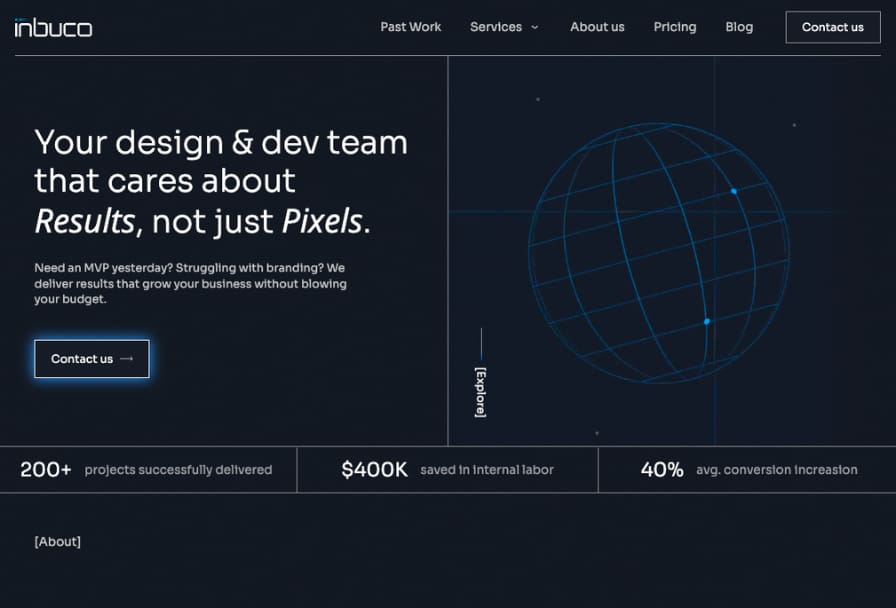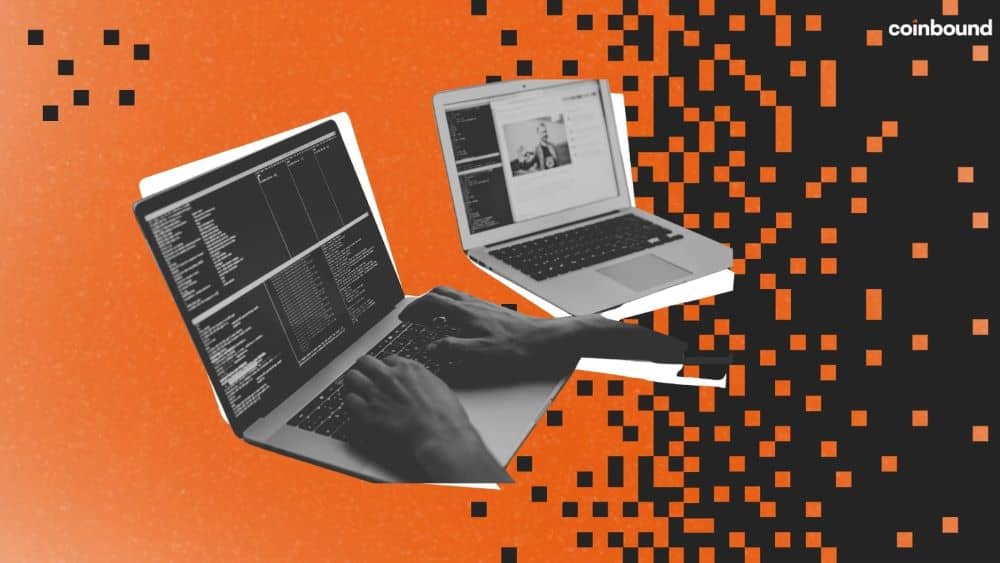As blockchain technology transitions from experimental pilots to production-grade infrastructure, companies across sectors—from finance to healthcare to supply chain—are investing in decentralized solutions. In 2025, the demand is for robust, compliant, and scalable blockchain systems that can power real-world applications.
Organizations today are looking for blockchain development companies to build secure smart contracts, launch custom decentralized apps (dApps), overhaul legacy systems, or architect entirely new blockchain networks. With regulatory clarity improving and tools maturing, the space has evolved from testing possibilities into deploying for impact.
But evaluating blockchain vendors remains difficult. Most sound the same on paper, using vague language around “innovation” and “disruption.” That’s why we created this list—with buyers in mind. Whether you’re scoping a new platform or upgrading infrastructure, these companies have demonstrable experience delivering on real business value.
1. Inbuco

- Location: USA
- Size: 40+ employees
Inbuco works with companies that need dependable blockchain infrastructure. Their team focuses on permissioned blockchains, smart contract development, and hybrid solutions that connect decentralized networks with traditional backend environments.
They have delivered projects for financial institutions, manufacturers, and government contractors. Common use cases include supply chain traceability, digital asset platforms, and secure data sharing across departments or partners.
Their developers are experienced with Hyperledger Fabric and Ethereum. Inbuco is a strong choice for organizations that need blockchain systems to align with internal policies and integrate seamlessly with existing platforms.
Inbuco is also a leading crypto design agency.
2. SoluLab

- Location: USA & India
- Size: 150+ employees
SoluLab delivers end-to-end blockchain solutions including smart contract development, enterprise-grade dApps, NFT marketplaces, and tokenization platforms. They’ve worked with clients in fintech, logistics, and entertainment, offering services tailored to both startups and Fortune 500s. Their team is proficient in Solidity, Ethereum, Hyperledger Fabric, and Binance Smart Chain.
Notable case studies include building a real estate tokenization platform and a decentralized ride-sharing app. Their experience extends to regulated industries and integration with IoT systems. SoluLab’s broad tech stack and cost-effective offshore delivery model make them a frequent pick for mid-size and enterprise clients.
3. Labrys

- Location: Australia
- Size: 50+ employees
Labrys focuses on blockchain product development—from technical architecture to frontend delivery. They specialize in smart contracts, token launches, Web3 UI/UX, and private blockchain deployments. Their work spans industries such as DeFi, carbon markets, and digital identity.
Their Ethereum and EVM-based projects stand out, especially for startups and corporates needing clean, audited code. Labrys has contributed to projects like Redbelly Blockchain and Open Forest Protocol. With a lean but skilled team, they’re often chosen for their clarity in delivery and structured dev process.
4. Plavno

- Location: Ukraine
- Size: 100+ employees
Plavno offers blockchain development alongside AI, mobile, and web development services. Their blockchain division builds NFT platforms, DeFi products, and B2B blockchain solutions. They serve sectors like gaming, finance, and eCommerce.
Tech stack strengths include Solidity, Rust, and Substrate. One of their recent projects involved creating a custom DeFi lending protocol with integrated KYC. Plavno’s hybrid model—mixing R&D capabilities with product delivery—suits clients looking for both technical and product insight.
5. Software Alliance

- Location: Pakistan
- Size: 80+ employees
Software Alliance provides full-cycle blockchain development, from idea validation to deployment and maintenance. Their services include DAO platforms, smart contract audits, and integration of blockchain with traditional ERP systems. They’ve worked with clients in gaming, supply chain, and healthcare.
The team is proficient in Solidity, Go, and Cosmos SDK. They’re known for building tailored Layer 1 and Layer 2 solutions and providing technical consulting to enterprise clients navigating compliance and scalability. Software Alliance is a fit for companies seeking regional expertise and enterprise-focused execution.
6. PixelPlex
- Location: USA, Europe
- Size: 100+ employees
PixelPlex is a long-standing development firm with a dedicated blockchain division. They build dApps, enterprise blockchain systems, NFT platforms, and crypto exchanges. Clients span industries such as banking, energy, and education.
With tech stack strengths in Ethereum, Hyperledger, and EOS, their portfolio includes use cases like blockchain-based voting systems and transparent charity donation platforms. PixelPlex’s ability to combine blockchain with AI and IoT integrations makes them a preferred vendor for complex, cross-functional projects.
7. Peiko
- Location: Ukraine
- Size: 60+ employees
Peiko focuses on decentralized applications, tokenomics, and MVP development for blockchain startups. They’ve built solutions in DeFi, NFT marketplaces, and blockchain-based crowdfunding platforms.
Their stack includes Ethereum, Polygon, and Binance Smart Chain. A notable project involved building a tokenized social investment platform that integrates fiat onramps and offramps. Peiko is particularly strong in UI/UX for Web3 interfaces, making them suitable for early-stage teams needing speed and clarity.
8. Eva Codes

- Location: Estonia & Ukraine
- Size: 40+ employees
Eva Codes delivers blockchain products with a specialization in smart contract development, DeFi protocols, and NFT infrastructure. Industries served include art, gaming, and fintech.
The team works with Solidity, Rust, and Haskell, and is proficient with chains like Ethereum, Solana, and Cardano. A recent highlight includes building a full-featured NFT marketplace with gas-optimized minting features. Eva Codes is often picked by clients looking for high-performance engineering on tight timelines.
9. SpaceDev
- Location: Poland
- Size: 50+ employees
SpaceDev delivers custom blockchain software for businesses in finance, energy, and logistics. Services include consensus mechanism development, crypto wallet integrations, and smart contract auditing.
They work across Ethereum, Avalanche, and Polkadot ecosystems, with experience in Cosmos SDK as well. One project involved building a cross-chain liquidity aggregator. Their combination of blockchain R&D and commercial software engineering makes them a fit for mid-size enterprises.
10. Systango

- Location: UK & India
- Size: 250+ employees
Systango supports enterprises and startups with Web3 development solutions including ICO development, DAO platforms, and smart contract deployment. They serve clients in entertainment, real estate, and finance.
Their developers work with Solidity, Truffle, and Web3.js and have experience in building enterprise dashboards for blockchain analytics. Notable clients include Grindr and Porsche. Systango’s hybrid delivery model helps keep costs predictable for complex, long-term projects.
What Does Blockchain Development Mean?
Blockchain development refers to the process of building decentralized applications or blockchain-based systems. A blockchain developer designs, codes, and maintains components like smart contracts, consensus algorithms, and backend services that operate on decentralized infrastructure.
Common blockchain applications include crypto wallets, NFT marketplaces, DAO platforms, and DeFi protocols. Developers typically work with languages like Solidity, Rust, or Go depending on the platform.
Blockchain Development vs Web Development
Blockchain development and web development both involve coding and application design, but they serve different purposes and use different technologies.
Web development focuses on building websites and web applications using frameworks like React, Angular, and Node.js. These apps typically rely on centralized databases and servers.
Blockchain development companies build applications that run on decentralized networks. Instead of traditional databases, they use distributed ledgers. Blockchain apps must consider immutability, trustless execution, and security from the ground up.
How to Choose a Blockchain Development Company?
- Industry experience: Look for teams that have built in your vertical (e.g., DeFi, gaming, healthcare).
- Tech stack: Ensure they work with the platforms and languages you need (Ethereum, Solana, Rust, etc.).
- Audit-readiness: Confirm they follow secure development practices and offer smart contract audits.
- Delivery model: Evaluate their ability to scale teams and meet deadlines.
- UI/UX capabilities: Especially important if you’re targeting non-technical users.
- Support and documentation: Post-launch support and technical documentation are critical.
- Case studies: Prior experience with successful deployments is a good trust signal.
Also see: Top Smart Contract Development Companies in 2025
Final Thoughts on Hiring a Blockchain Development Partner
The blockchain development firms listed above have demonstrated the ability to deliver secure, scalable solutions across different use cases. Each one brings technical depth and Web3 project experience that makes them worth considering.
Ultimately, the best partner is one who aligns with your product goals and can work at your pace, whether you’re launching a new Web3 product or expanding your enterprise stack.
If you need help narrowing down options or want blockchain marketing and PR support alongside development, Coinbound can help. We work with top-tier blockchain dev shops and offer expert guidance from ideation to go-to-market.
Ready to explore partnerships? Contact Coinbound to connect with vetted blockchain development companies and launch with confidence.








